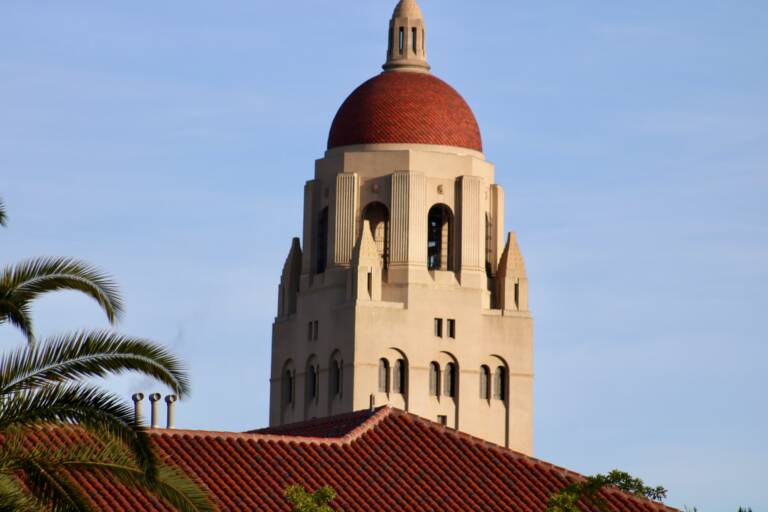The Stanford scandal and the decadence of the American academic world

A major scandal hits one of America's leading academic institutions and shows the decline of university study overseas.
Stanford University president Marc Tessier-Lavigne is set to step down following concerns over the integrity of his research. In a letter he announced that he will leave his position on August 31, all because the scientific correctness of many of his published studies has been questioned.
Tessier-Lavigne said he was stepping down because he expected continued debate about his ability to lead the university.
“I have never submitted a scientific paper without feeling adamant that the data was correct and accurately presented,” he said in a statement. But he added that he should have been more diligent in seeking corrections to his work.
The announcement comes after the board of directors of the historic institution, which is located in the heart of Silicon Valley and is often referred to as "the Ivy of the West Coast," launched a review late last year into allegations of fraud and of ethical misconduct relating to documents of which Tessier-Lavigne was the author or co-author.
The review covered 12 scientific papers Tessier-Lavigne had worked on, five of them as lead author.
The allegations of labor misconduct were first circulated on PubPeer, a website where members of the scientific community can discuss research papers, the commission's final report reads. The disputes are particularly serious because they concern the sector of biology and medicine.
The commission cleared the researcher of the most serious accusation, relating to a 2009 article on a model of neurodegeneration published in the scientific journal Nature and which could have influenced research on Alzheimer's.
The commission ruled that there was no fraud, but also concluded that the document had multiple problems, including a lack of rigor in its development and that the research leading up to the document and its presentation contained "various errors and deficiencies". . The commission found no evidence that Tessier-Lavigne was aware of the writing's lack of seriousness.
Although the report cleared Tessier-Lavigne of research misconduct charges, Thorp said the chief is ultimately responsible for what goes on in the lab and shouldn't be distracted from doing other work. Research is a team effort, but the lack of seriousness of the checks affects everyone's work, especially those who present the signature in person.
According to the final report of the commission, Tessier-Lavigne will have to retract three of the five articles of which he was the main author and make heavy corrections to the other two. If you want to learn more about Tessier-Lavigne's mistake, follow this video.
Tessier-Lavigne served as president of the university for nearly seven years. He will remain on the faculty as a biology professor and continue his research on brain development and neurodegeneration. In 2021, he received $1.5 million in compensation. Tessier-Lavigne was instrumental in creating the university's first new school in 70 years, the Stanford Doerr School of Sustainability, and in 2019 unveiled a long-term strategic plan that will continue to drive the university's growth.
This case is nearly contemporary with that of Harvard Professor Francesca Gino , a behavioral scientist whose work was so tainted by scientific data fraud that the university was forced to recall the study. A further demonstration of how often fraud occurs in this type of studies which, in this specific case, ironically, was precisely on the subject of fraud.
This is but the tip of the iceberg of the decadence of US academia and higher education. The crisis is so deep that there is a real flight from academic education.
“ Most Americans don't think a college degree is worth the cost,” Wall Street Journal reporter Douglas Belkin wrote in late March, based on a NORC survey of 1,000 American citizens.
Worse yet for colleges, the percentage of Americans with unfavorable ratings of a college degree's worth has risen steadily and quite markedly over the last decade and probably longer. Already 10 years ago a worrying 40% thought that colleges "were not worth the cost because people often graduate without specific job skills and with a large amount of debt to pay off". Now that percentage has risen to 56%, which is the majority.
This slump in student interest is tied to a slump in the perceived quality of teaching: as a recent Forbes essay points out, three-quarters of the 335 US universities in the global Top 2,000 have seen their rankings drop. Internationally their quality is perceived as declining. This means fewer foreign students, therefore less funding for institutions that are funded intentionally. The indirect result is a push for teachers to publish as much as possible, to rebuild the reputation of the university, and this comes to the detriment of the quality of the scientific production and the depth of the review.
The fact that the students are "Clients" then leads to an excess weight of their judgment compared to that of the teachers. If you are a client and not a student, I can't fail you, but if I don't fail you, the quality of the teaching declines, and therefore of future research and teaching. A vicious circle that leads to college students who can't place a country on a globe. At the same time if I lose authority in the preparation then I will attract fewer "Clients", ie students, because the superficial teaching will be perceived as useless, not attracting the "Client Students" and leading the institution to crisis.
The crisis therefore seems irreversible, except for a paradigm shift which, for now, is not seen.

Thanks to our Telegram channel you can stay updated on the publication of new articles from Economic Scenarios.
The article The Stanford scandal and the decline of the American academic world comes from Scenari Economici .
This is a machine translation of a post published on Scenari Economici at the URL https://scenarieconomici.it/lo-scandalo-stanford-e-la-decadenza-del-mondo-accademico-americano/ on Wed, 02 Aug 2023 14:46:45 +0000.
